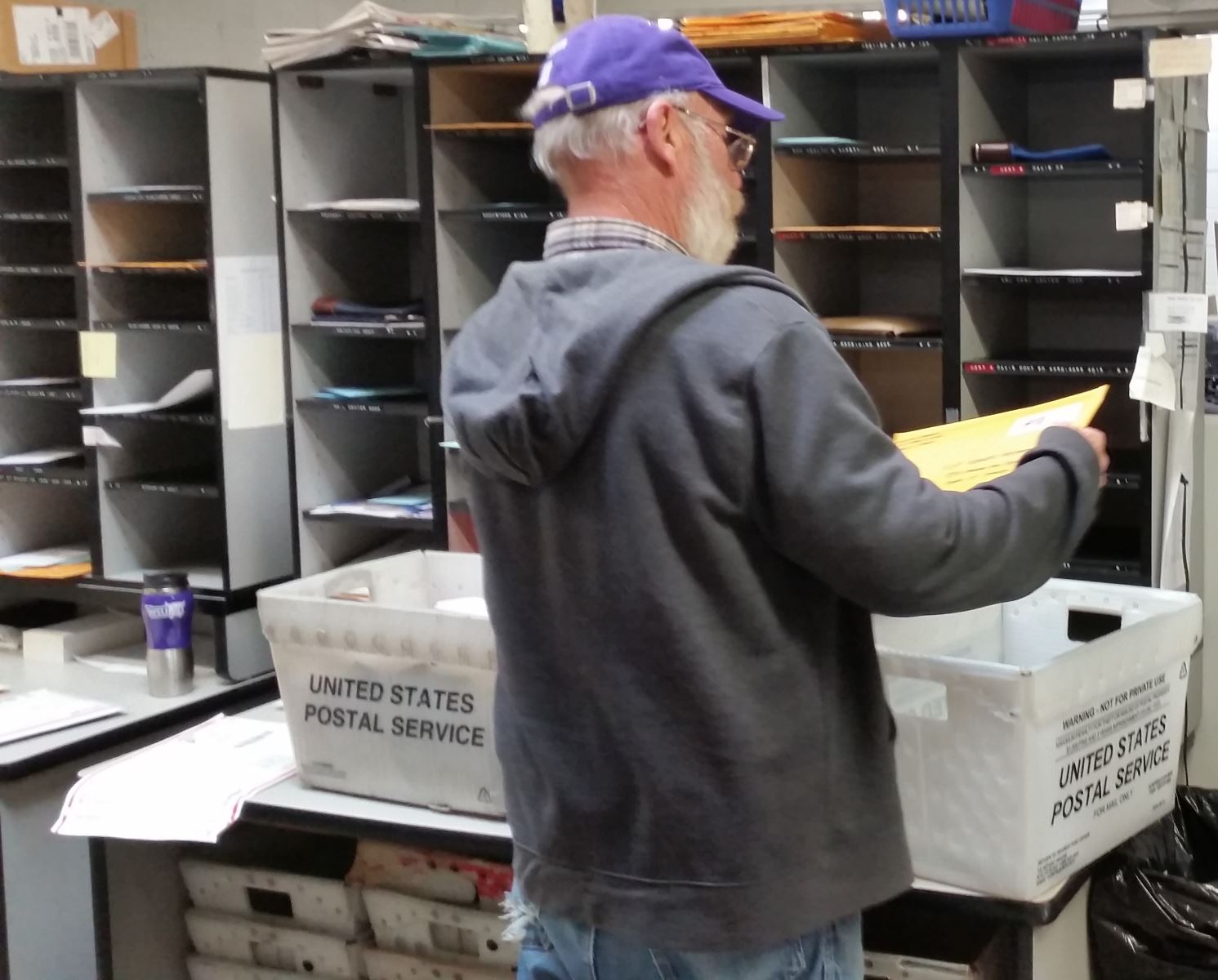Mailing Classes and Cost

First Class Mail
First-class mail is material wholly or partially handwritten (including carbons), postcards, completed forms, statements, invoices, and typewritten or computer processed correspondence. Abnormal objects (pens, thu cannot be sent in regular sized envelopes, therefore need to be sent in padded envelopes.
Weight
Up to and including 13 ounces. See "Priority Mail" for matter over 13 ounces.
Size
Minimum size is 3-1/2"x 5" for envelopes, cards, and self-mailers. Cards larger than 4-1/4"x 6" require first-class postage. CAUTION: orientation of the address label may affect eligibility for mailing.
Non-Standard Surcharge
Additional postage is required for first-class mail weighing one ounce or less which exceeds 11-1/2" (L), 6-1/8" (H) or 1/4" (D). The placement of the address determines which side of the piece is the length; therefore, if the piece is addressed such that the address is read across the short side of the piece, the postage surcharge may apply.
Priority Mail
Priority mail consists of all first-class mail weighing over 13 ounces and up to 70 pounds. In addition, mail weighing less than 13 ounces may be sent as priority mail, provided that the postage for the minimum priority rate (14 ounces) is paid. The USPS targets a two-day delivery for priority mail, however two-day delivery is not guaranteed. Any type of mail (e.g. books, printed matter, etc.) may be sent as priority mail when expediency is necessary.
Parcel Post
Parcel post is printed matter, merchandise, or other mailable material that weighs more than 16 ounces. Parcels should be marked "Parcel Post."
Media Mail
Essentially "Media Mail" is used for sending books (at least 8 pages, permanently bound) and educational materials including manuscripts, catalogs, films, printed sheet music, educational reference charts, computer readable media, specimens, and objective test materials. This rate is less expensive than regular standard mail, and each piece should be marked "Media Mail."
Express Mail
Domestic and International Express mail service is the fastest, and most expensive, type of mail offered by the U.S. Postal Service. Domestic express mail guarantees overnight delivery service of mailable material up to 70 pounds to most zip codes in the U.S. International service can be used to send documents and small packages to over 100 foreign countries. International next day service cannot be guaranteed a next day deliver. Express mail is insured against loss, damage, or rifling, up to $100 at no additional cost
Insured Mail
Postal insurance (up to $5,000) may be purchased domestically. Fragile items must be packaged with cushioning materials; heavy or bulky parcels must be reinforced with filament tape. Packages that appear to have been insufficiently prepared will not be accepted for mailing. A return receipt may be requested to show written evidence of delivery. NOTE: The USPS will not reimburse mailers in amounts higher than proven value. Don't over-insure packages.
International postal insurance is available to some countries for parcel post only. Insurance limits vary from country to country.

Delivery Confirmation
Delivery confirmation is a form of tracking for your mail packages at a low cost.
Certified and Registered Mail
Certified and Registered mail are often confused. Both must be sent First-Class and can have, but do not require a Return Receipt Card.
Certified Mail
Certified mail is a DOMESTIC service only. It provides a record of mailing for the sender, but does not provide any indemnity coverage. The record of delivery is kept at the destination post office. Certified mail must be sent first-class. A return receipt may be requested to show written evidence of delivery.
Examples: grant proposals, student/staff notifications.
Registered Mail
Registered mail is the most secure method of sending valuables through the mail system. It provides the sender with written evidence of mailing. This service is offered for both domestic and international mail. Costs include a registry fee in addition to postage. A value must be declared for the mail at the time of mailing. The registry fee for domestic mail will be determined by the declared value. The maximum declared value for international mail is low, nevertheless, it remains the most secure, (not speedy) method for sending international mail. Domestic registered mail must be processed at the first-class postage rate. Several service levels are available for international registered mail. A return receipt for registered articles may be requested to show written evidence of delivery.
Examples: airplane tickets, passports, items insured over $600.00 (although high value items may be handled through other means instead of registered mail.)
An envelope or parcel prepared for registered mail must be sealed so that any unauthorized opening will break the seal. Parcels must be sealed with plain paper or cloth tape on all seams of the article. If a parcel is heavy or bulky, reinforce it with strapping tape before wrapping and sealing. Padded envelopes are not accepted for domestic registered mail. Envelopes or parcels improperly or insufficiently prepared will not be accepted for mailing.
NOTE: Tape used on registered articles must be able to absorb a postmark. Slick plastic tape are not acceptable.
Return Receipts
Return Receipts furnish the mailer with proof of delivery. Return Receipts may be obtained for Express, Insured, Registered, and Certified mail. The Return Receipt is returned to the mailer after the article is delivered to the addressee.
NOTE: The fee for a Return Receipt does not insure the article against loss or damage.
International Mail
International mail rates, classifications, special services, weight and size limits, and other mailing requirements differ from those of domestic mail.
- In all cases, but especially if an address is written in a non-latin alphabet, the last line of the address must be the country, and it must be written in English. If there is an international zip code, it must be provided.
- Express service packages must have a phone number listed.
- All international mail packages require custom forms with the exception of documents only. Therefore, please provide contents and commercial value so the proper form can be completed. The forms can be obtained from Central Distribution and completed prior to being forwarded to Distribution.

